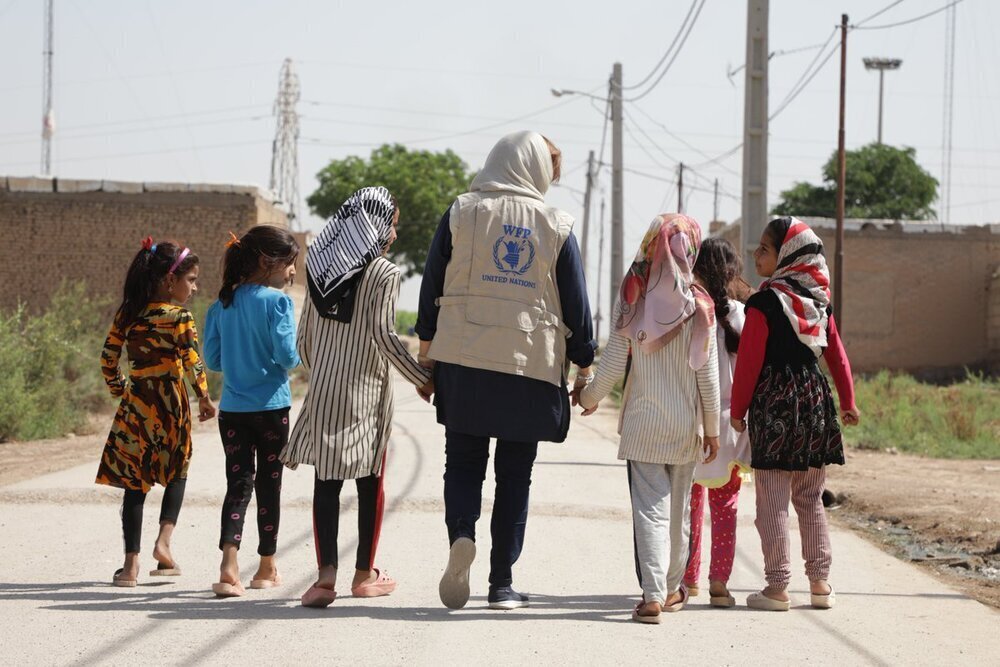WFP in Iran releases March report

TEHRAN - The World Food Program (WFP) has released a report, expounding on activities in Iran over the month of March.
WFP reached 32,938 beneficiaries including 32,318 refugees and 620 Iranian teachers as per the monthly target under unconditional resource transfers (URT), of whom 9,235 were women, 9,483 men, 6,787 girls, and 7,433 boys.
The refugees were assisted with a total of 262 MT of fortified wheat flour (9 kg per person per month) and vegetable oil (900 cc per person per month).
WFP provides cash assistance to 7,264 Afghan and Iraqi refugee households each month. In March, a cash amount of Iranian Rials (IRR) 1.2 million (US$ 3.3 according to the UN Operational Rate) per person per month was distributed to households headed by refugee women, and IRR 1 million (US$ 2.7) per person per month to households headed by refugee men.
During the reporting period, WFP distributed school meals consisting of milk and biscuits in all settlements, reaching 8,099 students and 620 Iranian teachers.
Moreover, it provided 2,857 refugee girls with a cash incentive of IRR 500,000 (US$ 1.3 transferred to their bank accounts.
This is part of WFP Iran’s efforts to promote education for refugee girls by providing them with cash for each month of regular school attendance.
Following the recommendations of the last Joint Assessment Mission conducted in February 2022, refugees with disabilities received a monthly cash top-up of IRR 1 million (US$ 2.7) in addition to their regular entitlement. The intervention was initially implemented in two settlements - Shahid Naseri and Mohajerin - with 28 refugee beneficiaries and subsequently expanded to 55 beneficiaries in March. As of April, it is expected that the program will be extended to 18 more settlements targeting 100 beneficiaries.
Meanwhile, WFP released its 2022 report on Iran based on Interim Country Strategic Plan (2018-2023).
According to the report, Iran was one of the most affected countries by the COVID-19 pandemic. While the pandemic gradually abated and restrictions were lifted by mid-2022, the country continued to struggle with its severe negative socio-economic impacts, the report said.
In mid-2022, the Government decided to cut subsidies from staple food items. As a result, the prices of meat and poultry, dairy products and cooking oil increased fourfold overnight.
Inflation and increased prices of basic food commodities combined with local currency devaluation and reduced job opportunities due to a stagnating economy have significantly reduced purchasing power of vulnerable groups including refugees.
Against this backdrop and despite the tightening of trade restrictions and external barriers, WFP Iran succeeded in meeting its plan of supporting over 32,000 refugees living inside 20 settlements with unconditional food assistance through a combination of locally procured in-kind food and cash-based transfers.
MG
